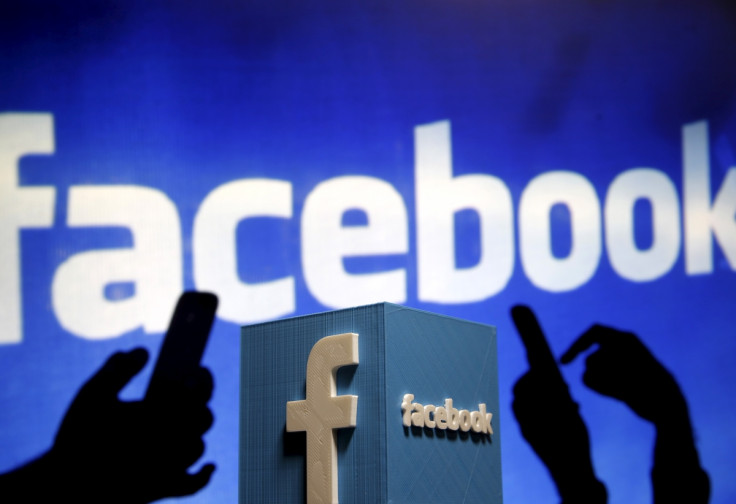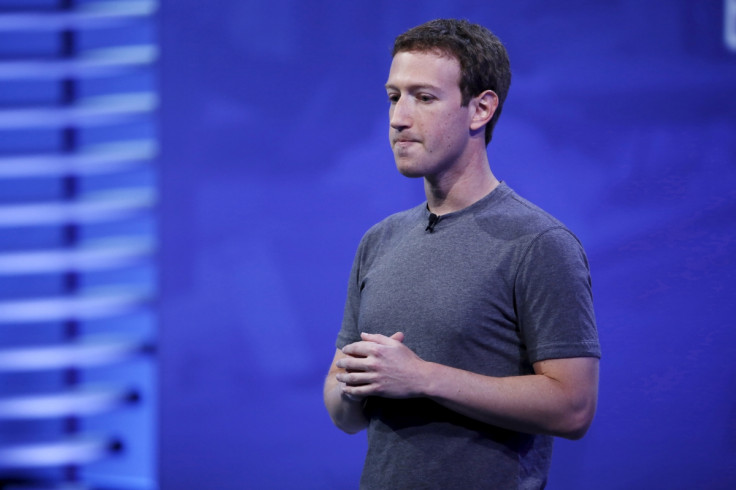Who cares about Facebook's supposed bias – the Internet's biggest myth is that it is free and open
Perhaps the biggest myth of the internet is that it is free and open.

Even if the prospect of a bombastic tonsorially-challenged orange man getting his hands on America's nuclear trigger is your idea of the stuff of nightmares, allegations (strongly denied) from within Facebook that the company censored right-wing news on its platform should be deeply troubling, if not even slightly surprising. Facebook routinely censors news and information, it is just that it doesn't call it censorship.
Perhaps the biggest myth of the internet is that it is free and open. It is possible it might have once been, but if so, it hasn't been for quite a while, and there is no suggestion that it is going to get any more free anytime soon. Like some immutable law of entropy, internet freedom is a one-way process.
The insightful Emily Bell, director of the Tow Center for Digital Journalism at Columbia University's Graduate School of Journalism, delivered an apocalyptic — and headline friendly — lecture earlier this year in Cambridge, entitled "The End of the News as We Know It: How Facebook Swallowed Journalism."
News distribution, she said, is now concentrated in the hands of a small clique of secretive industries who filter our news "through algorithms and platforms which are opaque and unpredictable." Although attacking Facebook directly, she is equal in her opprobrium for all the internet platforms (and that includes Google and Apple).
Alas, it is not as if this is a surprise. Tim Wu, in his exemplary 2010 book The Master Switch: The Rise and Fall of Information Empires, presciently plotted the free-to-closed trajectory that Facebook, Google and Apple have taken.
Brave new technologies turned into privately controlled behemoths
"Without exception," he wrote, "the brave new technologies of the twentieth century — free use of which was originally encouraged, for the sake of further invention and individual expression — eventually evolved into privately controlled industrial behemoths, the "old media" giants of the twenty-first, through which the flow and nature of content would be strictly controlled for reasons of commerce.
"History shows a typical progression of information technologies: from somebody's hobby to somebody's industry; from jury-rigged contraption to slick production marvel; from a freely accessible channel to one strictly controlled by a single corporation or cartel — from open to closed system. It is a progression so common as to seem inevitable, though it would hardly have seemed so at the dawn of any of the past century's transformative technologies, whether telephony, radio, television, or film."

Wu's compelling story tells the life of Theodore Vail, founder of the US phone giant Bell. He, like Mark Zuckerberg, presided over a company that fought to control the distribution of news. And he too was a man, like those running today's technology behemoths, filled with good intentions, whatever path they may lead one down.
A quest to free mankind
According to Wu: "With the security of monopoly, Vail believed, the dark side of human nature would shrink, and natural virtue might emerge. He saw a future free of capitalism's form of Darwinian struggle, in which scientifically organized corporations, run by good men in close cooperation with the government, would serve the public best."
In his quest to free mankind, Vail's company crushed opposition. It used every tool it could to secure first local monopolies and then a national one. Does any of this sound familiar?
Facebook is the de facto global social network. Google owns search; in the UK it accounts for 86.5% of all search. Elsewhere in Europe that figure tops 90%. Four out of every five smartphones around the world run a version of Google's Android operating system. These are global monopolies on a scale far beyond anything Vail could have dreamed of.
The latter-day Vail's don't even need to browbeat today's news companies — they are lining up to kowtow. Publishers are supinely handing over their content to appear as Facebook Instant Articles which means, according to Facebook's glossy sales pitch, articles load 10x faster and readers are 70% less likely to abandon an article. What the brochure doesn't make clear is that no longer do media organisations get to decide what to write, they are subject to Facebook's rules. And this is a company that has often behaved like a blushing censorious maiden aunt, removing images of breastfeeding women and gay men kissing.
Facebook's denial of censorship is meaningless
Facebook has denied the allegation that it is deliberately suppressing news, but its denial is meaningless, it is doing it anyway. That's what Facebook's faceless algorithm is for. Of course it isn't "censoring" in the pejorative sense, this is censorship-as-a-service, whereby Facebook serves you only the things it thinks you want to see (and presumably will keep you coming back to their advertising-driven service). You need never have your cosy Weltanschauung challenged.
So what? News gatekeepers have always existed, once it was media barons, now it is lines of code. Let's not pretend that some golden age of journalism existed prior to the crushing feet of the global tech giants. The UK's media landscape is littered with figures of questionable ethics who have used their power to further their own particular ends. But, imperfect as it was, there existed a rough-and-ready balance in the market; from the Morning Star to the Financial Times. And within any newspaper there was an implicit deal: come for the crossword, stay for the war crime. Readers would at least be exposed to a variety of news.
That has gone and, as Bell said, with the dominance of the platforms "there is a far greater concentration of power ... than there ever has been in the past. Networks favour economies of scale, so our careful curation of plurality in media markets such as the UK, disappears at a stroke."
Whatever your views on Donald Trump, breastfeeding or same-sex kisses, surrendering the right to be offended by them to Mark Zuckerberg is a very bad Faustian deal. And we all know how that ended.
Ben Rooney is the former technology editor of The Wall Street Journal in Europe.
© Copyright IBTimes 2025. All rights reserved.






















